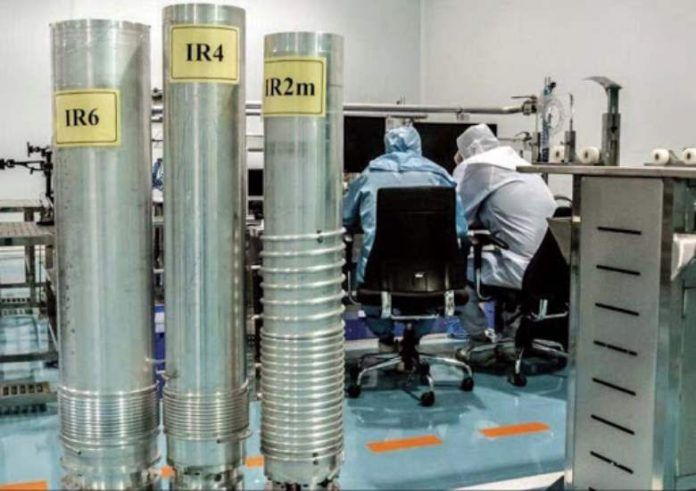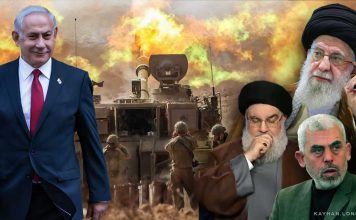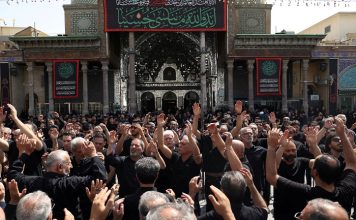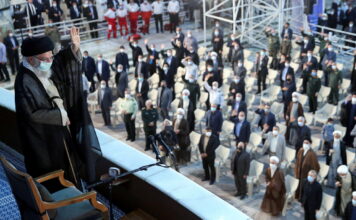The Atomic Energy Organization of Iran (AEOI) released a statement on May 29 condemning a move by the U.S. State Department two days earlier to end the sanctions waiver for Russia, China, and the E.U., all signatories to the Joint Comprehensive Plan of Action (JCPOA), better known as the Iran nuclear deal. The statement also attacked Washington for sanctioning two Iranian nuclear officials, Amjad Sazgar and Majid Aghaei.
“The deplorable measure by the decision-makers in the White House to sanction two scientists involved in the country’s nuclear industry shows the U.S. government’s ongoing hostility towards our country and its idiotic treatment of dedicated people who work for the glory of Islamic Iran,” the statement said. “We take this opportunity to remind all ill-wishers of Islamic Iran that their continued violations of international laws would only strengthen the resolve of Iranian scientists and researchers and weaken the global status of our enemies.”
“There will be some excellent news soon about Iran’s nuclear industry,” the statement added.
European governments favored the renewal of the JCPOA sanctions waiver as it would have enabled them to keep a close eye on Iran’s nuclear program and also maintain an economic relationship with the Islamic Republic
But on May 27, the U.S. State Department ended the sanctions waiver for Russia, China, and the European countries that help Iran with its nuclear energy program.
“Today, I am announcing the end of the sanctions waiver covering all remaining JCPOA-originating nuclear projects in Iran — the Arak reactor conversion, the provision of enriched uranium for the Tehran Research Reactor, and the export of Iran’s spent and scrap research reactor fuel,” U.S. Secretary of State Mike Pompeo said in a statement. “The sanctions waiver covering these activities will end following a final 60-day wind-down period allowing companies and entities involved in these activities to cease their operations.”
“I am also announcing the designation of Majid Aghaei and Amjad Sazgar under E.O. 13382 for engaging or attempting to engage in activities that have materially contributed to or pose a risk of materially contributing to, the proliferation of weapons of mass destruction. Sazgar is the Managing Director of the Atomic Energy Organization of Iran, the entity responsible for the industrial-scale production of uranium enrichment gas centrifuge machines,” Mr. Pompeo explained. “Aghaei has also been centrally involved in Iran’s uranium enrichment centrifuge operations and is a manager in the Atomic Energy Organization of Iran subsidiary responsible for research and development of advanced centrifuges.”
“Moreover, Iran’s nuclear personnel need to make a choice — work for Iranian proliferation organizations and risk being sanctioned or put their skills to work for the Iranian people in pursuits outside of the proliferation realm,” Pompeo added.
The next day, Mikhail Ulyanov, Russia’s permanent representative to the International Organization in Vienna, tweeted: “The U.S. ends sanctions waiver covering the JCPOA-originating (and endorsed by UNSC) nuclear projects in Iran. Illegal U.S. sanctions against these projects mean further violations of the UN Charter (Article 25), UNSC res.2231, and NPT (art.4). The U.S. continues to undermine non-proliferation.”
Josep Borrell, the High Representative of the European Union for Foreign Affairs and Security Policy, also condemned the move by the U.S. to end sanctions waiver for countries remaining in the JCPOA.
“The agreement remains the best and only way to ensure the peaceful nature of the Iranian nuclear program,” Mr. Borrell told a United Nations Security Council meeting on Europe-UN relations on May 28. “This is why I regret yesterday’s decision by the U.S. not to prolong the waiver for the JCPOA-related nuclear projects.”
“This will make it more difficult for the international community to ensure the exclusively peaceful nature of Iran’s nuclear program,” Borrell added.
“The global body overseeing the non-proliferation of nuclear weapons, the International Atomic Energy Agency (IAEA), is soon to release an updated report on Iran’s compliance with its Nuclear Non-Proliferation Treaty (NPT) obligations. It won’t be a good one,” The Newsweek reported on May 24. “At its quarterly meeting in June, the IAEA will tell its Board of Governors whether the Islamic Republic has allowed full and unrestricted access to key nuclear sites and answered outstanding questions on the agency’s investigation into suspected nuclear activities in Iran.”
This article was translated and adapted from Persian by Fardine Hamidi.







Appreciate your work